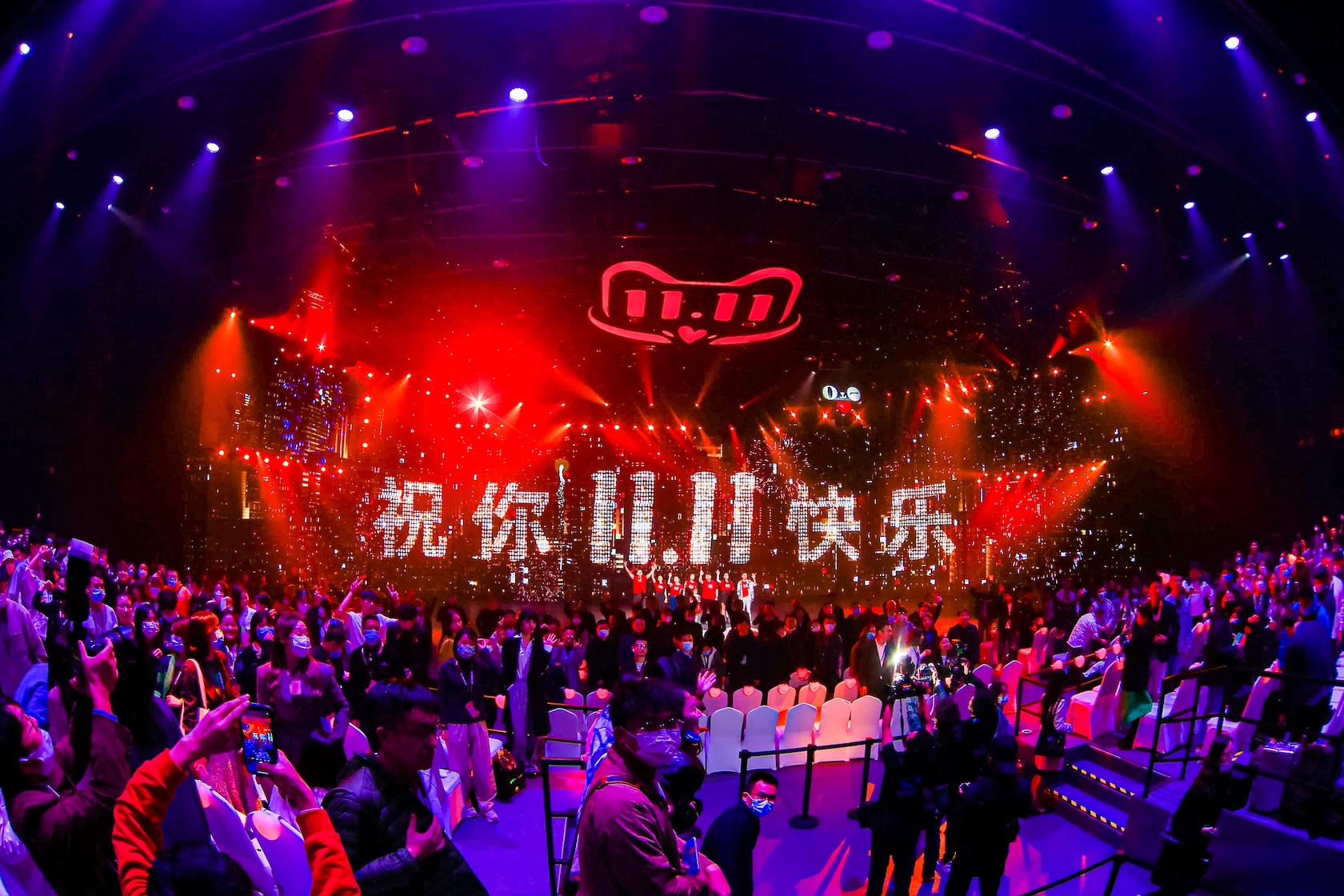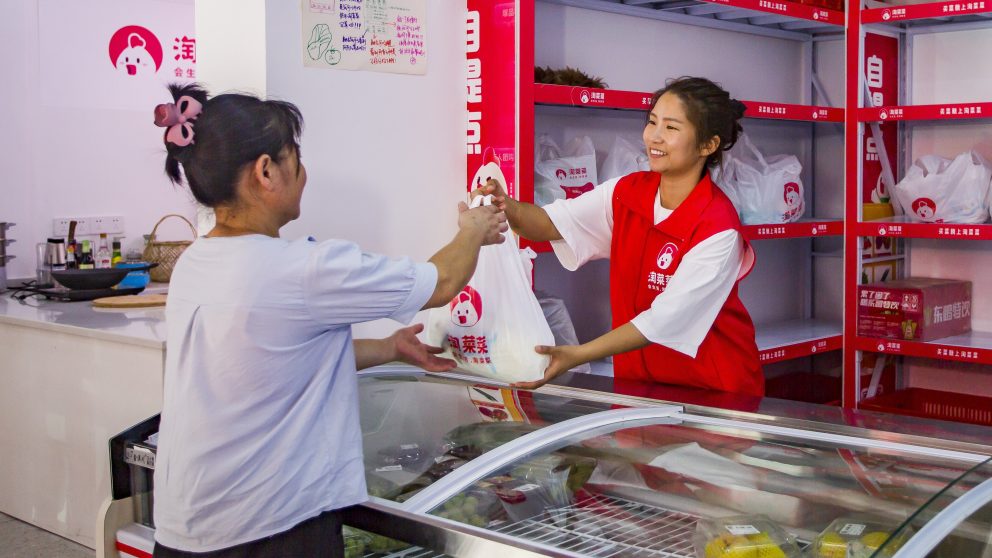
- Sustainability, Gen Z Consumers and Livestreaming Are E-Commerce Watchwords For the Year Ahead
As we say goodbye to 2021, we examine the big e-commerce trends that took off in China this year, and look set to gather momentum in 2022.
Sustainability was at the forefront of retailers’ minds as the gravity of climate change permeated consumers’ shopping habits.
E-commerce platform Alibaba Group said it would slash carbon emissions by 1.5 gigatons by 2035 in partnership with merchants and consumers. Logistics companies such as Cainiao Network strove to deliver parcels in greener packaging and promote the recycling of boxes.
Second-hand marketplaces flourished, such as Idle Fish that sells everything from used electronic gadgets to pre-owned designer gear.
Global brands accelerated their pivot to China as the coronavirus pandemic ravaged their home markets. Over the year, we showcased how retailers, such as French luxury jeweler Cartier and Italian upmarket loafer designer Tod’s, overcame language and cultural barriers to expand in the world’s second-largest economy using tools such as livestreaming and Hey Box.
Technology stories are always popular among our readers and self-driving robots and next-generation chips were hot favorites.
Generation Z and Millennial consumers were e-commerce trendsetters in 2021, fueling a surge in innovation, from sub-culture fashions to gender-neutral perfumes.
Digital travel and tourism during the pandemic captured readers’ imaginations. Cultural institutions the world over turned to livestreaming to keep their reputations and influence alive. Spectators were barred from the Olympic Games in Tokyo and won’t travel to Beijing in February either. Still, the world’s largest sporting event is migrating online and Beijing 2022 is set to make history as the most digital Games yet.
As e-commerce apps saturate the country’s metropolises from Beijing to Shanghai, we sought out the industry’s new growth frontiers such as community marketplaces such as Taocaicai and we examined what’s happening in China’s booming hinterland.
Shopping festivals such as 11.11 and 6.18 remained key dates in retailers’ calendars with swelling gross merchandise value. However, as e-commerce took on a more prominent role in the world’s second-largest economy during the pandemic, brands looked to secure customer loyalty throughout the year.
We have compiled Alizila’s top ten articles below that best capture the most remarkable of these trends.
We based our choices on interest from our readers as per Google Analytics and the Editor’s choice of exclusive and heavily researched articles that offer the greatest insights into China’s digital landscape in 2022:
No. 1: Alibaba pledged to slash carbon emissions by 1.5 gigatons across its digital ecosystem by 2035, making it the first major platform operator to set such a target. This article delves into why the move matters. Learn More
No. 2: Our wrap of China’s largest shopping festival 11.11 shows how Alibaba is expanding its metrics for success, from GMV to include sustainability and inclusivity. Learn More
No. 3: Idle fish, a secondhand trading platform, is riding the wave of secondhand trading as Chinese consumers declutter their homes. We talked to sellers and shoppers to understand how the app promotes a sustainable way of life. Learn More
No. 4: Over the year, supply chain backlogs have delayed deliveries. We talked to brands to learn how they met demand in China by tapping into Cainiao’s logistics network. Learn More
No. 5: As the pandemic restricts international travel, we explored how one of the world’s most important cultural institutions, the British Museum, partnered with Fliggy, Alibaba’s travel services platform, to beam historical events directly into people’s living rooms. Learn More
No. 6: China will likely be the planet’s biggest luxury market by 2025, Italian luxury group Tod’s is stitching itself into the lives of the country’s burgeoning middle class by creating an omnichannel experience for shoppers. In an exclusive interview with Tod’s CEO, Diego Della Valle, relates the company’s experience in China. Learn More
No. 7: China’s affluent Gen Z and Millenial urbanites are shaping the future of the country’s consumer market; what they want today will be mass-market tomorrow. We compiled key trends for global retail brands to note based on insights and data gathered from around Alibaba’s ecosystem. One of the most surprising hero products: broccoli-flavored ice cream. Learn More
No. 8: Technology aficionados loved reading about Alibaba’s fleet of self-driving robots. We explained how the bots, powered by an algorithm designed by DAMO Academy, are solving the last-mile conundrum of e-commerce. Learn More
No. 9: China had 286 million rural migrant workers as of April and many are turning to e-commerce apps to buy quality goods within their means. We took a deep dive into Taobao Deals’ boom and examined what its popularity revealed about shifting consumer trends in rural areas. Learn More
No. 10: China’s lower-tier cities are home to more than 930 million people, almost three times the U.S. population. We showed how Alibaba is gaining traction in such lower-tier cities in China. Learn More
This list is a small sample of the stories Alizila has run over the past year. To stay abreast of key developments across Alibaba’s ecosystem as well as trends and innovations in the digital ecosystem during 2022, be sure to sign up for Alizila newsletter below:














